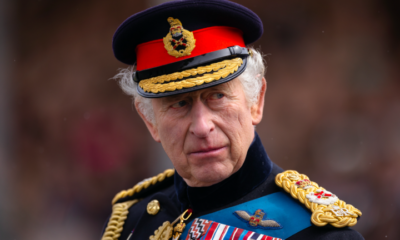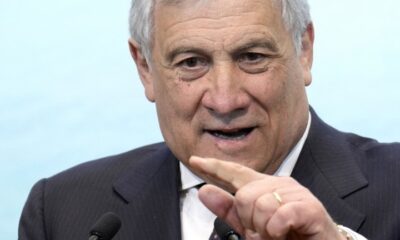POLITICS
Did Democrats just help Trump win reelection?
Published
4 years agoon

The headline in Politico, the leading tribune of inside-the-Beltway conventional wisdom, was stark: “Dems fret trade deal helps Trump reelection.”
“It’s a huge deal,” President Trump added at his rally on Tuesday in Hershey, Pa. “Our poll numbers have gone through the roof.”
The deal that Trump and others are touting is called the U.S.-Mexico-Canada Agreement (or USMCA), and once enacted, it will supersede the 26-year-old North American Free Trade Agreement. Originally introduced in 2017, the USMCA has been one of Trump’s top priorities since taking office — the long-delayed fulfillment of his signature campaign promise to renegotiate NAFTA.
On Tuesday, House Speaker Nancy Pelosi announced that after months of haggling over key details, House Democrats had officially agreed to back a revised version of Trump’s new trade pact — an announcement made just one dizzying hour after House Democratic leaders unveiled articles of impeachment against him.
Many progressives were apoplectic about the mixed messaging, arguing — like Trump — that the USMCA would effectively help keep in office the same dangerous president Democrats were simultaneously endeavoring to remove.
“Nothing more perfectly embodies the Democratic party than announcing articles of impeachment and a huge deal with the President on his single biggest priority on the same day,” tweeted MSNBC host Chris Hayes.
“House Dems were elected on a wave of anti-Trump sentiment and are now diligently working to ensure his reelection and send the message to the electorate that impeachment is just meaningless partisan theater,” added the Atlantic’s Adam Serwer.
But are Pelosi’s critics correct? Will the USMCA actually help Trump get reelected?
Speaker Nancy Pelosi and House Ways and Means Committee Chairman Richard Neal, D-Mass., speak about the USMCA trade agreement on Dec. 10. (Photo: Saul Loeb/AFP via Getty Images)
In a one-dimensional sense — that is, if you evaluate the trade deal solely from Trump’s perspective — then yes, the USMCA is a good thing for the president. He has railed against NAFTA forever, and his vow to strike a fairer arrangement for American workers is one of several interrelated factors that put him over the top with enough white non-college-educated voters in Michigan, Wisconsin and Pennsylvania to eke out the narrowest of Electoral College victories in 2016. He can now say he kept his pledge by crossing the aisle and working with Democrats. After a first term largely devoid of other legislative accomplishments, that may help keep some blue-collar voters in his corner.
The problem for Trump, however, is that politics isn’t one-dimensional. To really assess the political impact of the USMCA, you have to weigh the benefits for Democrats against the benefits for Trump. Once you do that, it’s not at all clear that Pelosi — labeled by some fans as the “greatest speaker of modern times” — has made the kind of unforced error her liberal critics fear.
Consider the “mixed messages” argument. The gist is that Democrats should remain focused on Trump’s alleged wrongdoing and not dilute the impact of those allegations with bipartisan compromises. After all, if Dems are still willing to work with the president, how bad could his offenses be?
But the assumption here — that the longer impeachment stays in the headlines, the more voters will turn against Trump — is faulty. In fact, the polling shows that public opinion has only become more stable and more polarized over the course of the impeachment inquiry. Trump’s approval rating hasn’t budged, either. In other words, any damage to the president has already been done. One fewer news cycle of impeachment stories isn’t going to change anything.
Then there’s the election itself to think about. Sure, the USMCA gives Trump a talking point. But it also gives one to every Democrat running in a purple House district — politically moderate places where impeachment tends to be less popular than, say, passing bipartisan legislation. According to the expert handicappers at the Cook Political Report, 36 seats currently held by Democrats are at risk in 2020 — roughly twice the number of vulnerable Republican seats. That’s enough, in theory, to flip the House. Endangered Democrats were reportedly begging Pelosi for a trade deal that they could take back to their impeachment-weary constituents as proof that they could “walk and chew gum.” And that’s what she gave them.
Trump, of course, will take credit for the pact. But there’s reason to think House Democrats will also be able to boast on the trail. When Trump unveiled his initial USMCA draft, major unions such as the AFL-CIO characterized its labor protections as toothless and Democrats refused to support it without major changes. Critics on the left dismissed it as “NAFTA 2.0, a lightweight rebranding effort that would do little good for American workers,” as Slate recently recalled.
But in subsequent negotiations with the White House, Democrats were able to get pretty much everything they demanded: more enforcement on environmental rules, the removal of a provision that would have raised prescription drug prices and, most important, stronger enforcement of labor standards in Mexico —including a process, as AFL-CIO president Richard Trumka put it in his endorsement Tuesday, “that allows for the inspections of factories and facilities that are not living up to their obligations.” According to GOP Sen. Pat Toomey of Pennsylvania, the negotiations “seemed to be … just a one-way direction in the direction of the Democrats.”
“We ate their lunch,” Pelosi reportedly crowed during a closed-door meeting with House Democrats. Pleasing labor unions is generally seen as smart electoral politics for Democrats.
Which brings us, finally, to the presidential contest. The vast majority of Americans already know what they think of Trump. Right now, 41.9 percent approve, on average; 53.2 percent disapprove. Exactly one year ago, those numbers were 41.9 percent and 51.9 percent, respectively. None of the ups and downs of the past 12 months have moved the needle.
On Nov. 3, 2020, an 11-month-old bipartisan policy is not going to determine Trump’s fate. What will matter then is how Americans feel about the Democrat facing off against him. That’s the big variable.
All of Trump’s potential rivals voiced deep opposition to the initial version of the USMCA and called for a host of revisions; many have their own trade plans. Whoever wins the nomination will have plenty of time to hash out their trade differences with Trump during next year’s general election. But given how quickly today’s news cycle moves — and how frequently Trump himself veers off script and latches onto the latest hot-button topic — chances are they’ll be talking about something else by then.



You may like
POLITICS
Erdogan election defeat would be ‘revenge’ – Syrian Kurds
Published
12 months agoon
May 23, 2023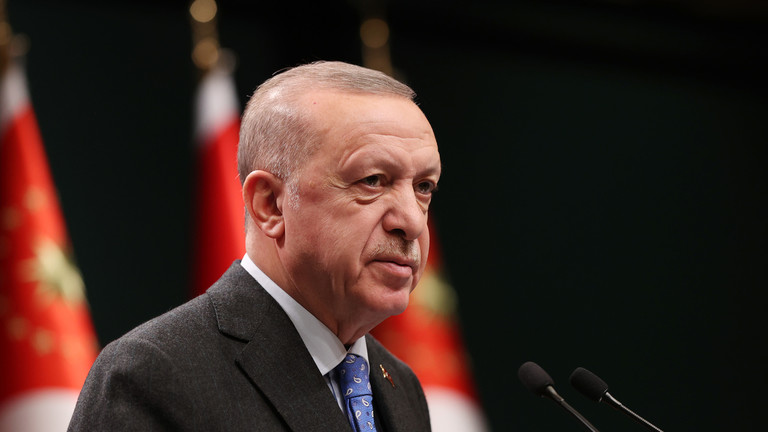
The YPG claims the Turkish president failing to win another term would be payback for Ankara’s counter-terrorism operations in Syria
President Recep Tayyip Erdogan’s defeat in this month’s presidential election would serve as “revenge” for Türkiye’s military operations in Syria, a top official of the People’s Defense Units (YPG) has said.
Salih Muslim, one of the leaders of the YPG — a Syrian militant group affiliated with the Turkish Kurdistan Workers Party (PKK) and designated by Ankara as a terrorist organization — said in an interview with Medya Haber Kurdish TV channel that his organization has grown frustrated with Türkiye’s counterterrorism operations ongoing in the northern part of Syria since 2016, Daily Sabah reported.
“Now, we have an opportunity in our hands,” Muslim said, stressing that the YPG is eager to see Erdogan unseated. “It’s the first time we have such a thing happening in elections.” He added that “If we can win at the ballot box, we will take all the revenge from [the defeat of] one person.”
Muslim’s statement comes as several members of the YPG and the PKK have openly expressed support for Erdogan’s main challenger, Kemal Kilicdaroglu, as the two head into a runoff election on May 28. In the previous round, held on May 14, both candidates failed to secure an outright majority with Erdogan gaining just over 49.4% of the vote while Kilicdaroglu received 44.96%.
Kilicdaroglu has vowed to mend Ankara’s relations with NATO and revive Türkiye’s EU membership talks, which have been effectively stalled since 2016. He has also accused Russia of spreading “conspiracies” and “deep fakes” apparently referring to footage circulating online purportedly linking him to the PKK, and told Moscow to get its “hands off the Turkish state.” Russia has rejected the accusations.
Somalis cheer on Türkiye’s Erdogan to win re-election
Erdogan has repeatedly accused his rival of “colluding with terrorists” and threatening to undo Türkiye’s achievements in its war on terror. He has also blasted Kilicdaroglu for trying to “detach” the country from Russia.
Türkiye has been waging low-intensity warfare against Kurdish militias along its Syrian and Iraqi borders for four decades, in a back-and-forth campaign that has claimed the lives of over 40,000 people.
The PKK and its affiliates have been waging an insurgency since 1984 demanding political and cultural autonomy with the final goal of establishing an independent Kurdish State, laying claim to territories in southeast Türkiye and northern parts of Iraq and Syria.
You can share this story on social media:
PLEASANT MUSIC FOR YOUR CAFE, BAR, RESTAURANT, SWEET SHOP, HOME
SUITABLE MUSIC FOR YOGA LOVERS
Post Views:
840
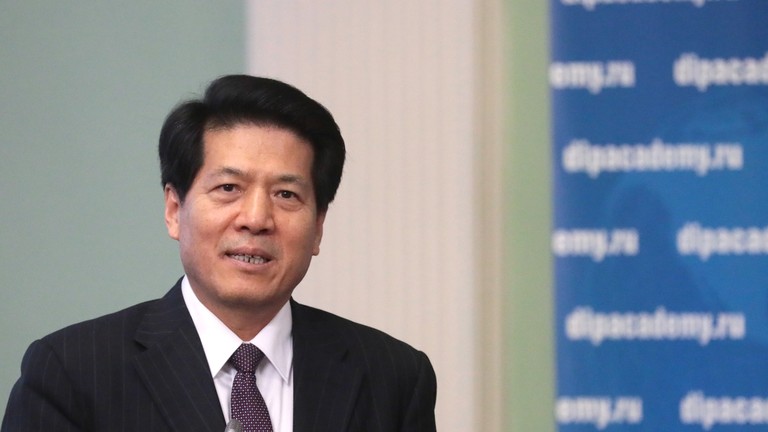
Li Hui visited Kiev to share Beijing’s views on a political settlement to the Ukraine crisis
Ukrainian President Vladimir Zelensky has met with China’s newly appointed special envoy for Eurasian affairs, Li Hui, who traveled to Kiev to convey Beijing’s views on a diplomatic resolution to Ukraine’s conflict with Russia.
According to a statement published on Thursday by the Chinese Foreign Ministry, Li held talks with Zelensky as well as the head of the Ukrainian President’s Office, Andrey Yermak, Foreign Minister Dmitry Kuleba, and representatives from several other ministries.
Beijing said both sides had agreed that the recent phone call between Chinese President Xi Jinping and Zelensky had outlined the direction for future relations between their two nations, which it stated should be built on mutual respect and sincerity.
During his trip, Li reiterated that Beijing is willing to serve as a peace broker to help reach a political resolution to the conflict with Russia, based on the principles outlined in a 12-point roadmap published by China in late February.
“There is no panacea in resolving the crisis. All parties need to start from themselves, accumulate mutual trust, and create conditions for ending the war and engaging in peace talks,” Li said, according to the Chinese Foreign Ministry’s statement.
The special envoy’s two-day trip to Ukraine is the first leg of a wider European tour, during which he is expected to visit Poland, France, Germany, and Russia. Beijing has explained that the trip aims to promote communication toward “a political settlement of the Ukraine crisis.”
Hungary backs Chinese plan for Ukraine
China’s peace efforts have been welcomed by Russia as well as some European nations such as Hungary, and have been praised for acknowledging the national interests of both parties.
The roadmap, however, has been criticized by some in the West. NATO Secretary General Jens Stoltenberg claimed that China lacked “credibility” as it has refused to condemn Russia’s actions in Ukraine. EU foreign policy chief Josep Borrell insisted that “the only thing that can be called a peace plan is Zelensky’s proposal.”
The Ukrainian president has demanded that Russia must withdraw from territories that Kiev claims as its own, as well as pay war reparations and face an international tribunal. The Kremlin has dismissed the initiative, claiming it does not take into consideration “the realities on the ground,” including the new status of four former Ukrainian regions as part of Russia.
You can share this story on social media:
PLEASANT MUSIC FOR YOUR CAFE, BAR, RESTAURANT, SWEET SHOP, HOME
SUITABLE MUSIC FOR YOGA LOVERS
Post Views:
698
POLITICS
Pakistan’s top court orders release of former PM Imran Khan
Published
1 year agoon
May 12, 2023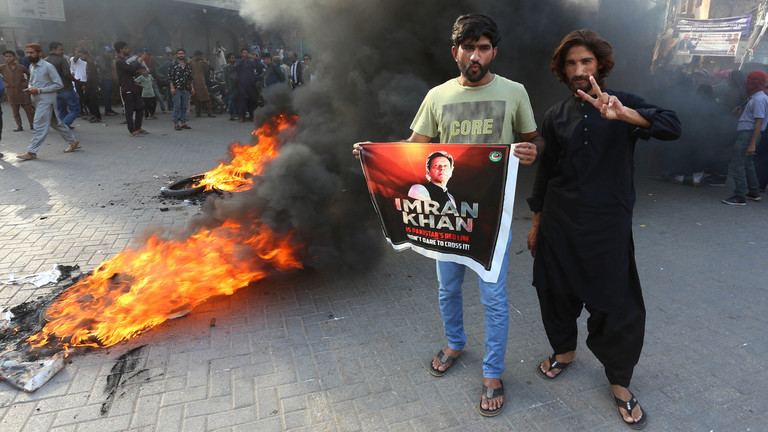
Pakistan’s Supreme Court has ordered the release of former prime minister Imran Khan, whose arrest earlier this week triggered deadly protests across the country, Geo TV news channel has reported.
The court considered an appeal by Khan’s legal team on Thursday, ruling that the arrest of the opposition figure was illegal, according to the broadcaster.
The leader of the Pakistan Tehreek-e-Insaf (PTI) party was detained on an order from the National Accountability Bureau (NAB) on Tuesday as soon as he arrived at a lower court in connection with a graft case against him. He has been held at a police compound in the capital, Islamabad, since then.
Khan’s spokesperson told Al Jazeera that the 70-year-old was apprehended in court before he could even appear before the judges, which was “in violation of all laws.” The PTI party claimed that it was not an arrest, but “an abduction,” and called on its supporters to take the streets.

Pakistan deploys army after Imran Khan’s arrest
Pakistan has been gripped by violent protests for the last three days, with demonstrators clashing with security forces and setting government buildings on fire in major cities across the country. The government of Prime Minister Shehbaz Sharif has deployed the military in an attempt to curb the unrest.
Some 2,500 of Khan’s supporters, including some top figures in his party, have been arrested so far. Local media have reported at least 11 protesters killed and hundreds of police officers wounded.
Numerous criminal cases have been launched against Khan since his removal from office after a no-confidence vote in April 2022. The PTI leader, who remains highly popular in the country, denies all accusations against him.
The politician claimed a year ago that he had been deposed as a result of a US-led “international conspiracy” and accused his opponents of receiving money from foreign forces.
Khan has been making active attempts to return to power since then, staging massive rallies across the country. The former premier survived an assassination attempt last November, escaping with a non-life-threatening leg wound after several bullets were fired at him.
You can share this story on social media:
PLEASANT MUSIC FOR YOUR CAFE, BAR, RESTAURANT, SWEET SHOP, HOME
SUITABLE MUSIC FOR YOGA LOVERS
Post Views:
813



Global debt balloons to record highs

German military to sell tons of toilet paper

First female Saudi astronaut heads to space

Nigeria takes step to combat fuel shortages

US will default if debt deal fails – treasury secretary

Village People demand Trump stop using their music

Hollywood star pulls out of hosting awards show amid strike

Rock icon slams German authorities

Agatha Christie novels chopped by ‘sensitivity readers’ – media

Marvel star back in training after breaking over 30 bones

Turkish minister escapes fire blast (VIDEO)

Trump savages pop star’s Super Bowl performance

Alec Baldwin sued by Ukrainian family of slain cinematographer

Duran Duran stumbles, Dolly Parton rolls into Rock Hall

Sweden probes possible plot behind Russian pipeline leaks

FINANCE


Global debt balloons to record highs
It’s now $45 trillion higher than its pre-pandemic level and is expected to continue growing rapidly, a top trade body...


Nigeria takes step to combat fuel shortages
The West African country has built a giant oil refinery to cover domestic demand Nigeria will commission its new Dangote...
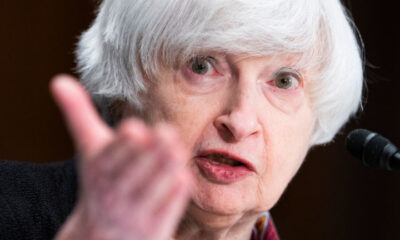

US will default if debt deal fails – treasury secretary
The current borrowing limit is a constraint on Washington’s ability to meet its obligations, Janet Yellen insists America’s chances of...


Facebook parent Meta fined €1.2 billion by Irish watchdog
The American tech company has been accused of violating EU data privacy rules US tech giant Meta has been hit...


UK’s business with sanctioned country booming
Trade between Britain and Iran has reached the highest level in a decade, according to official data, apparently having been...

POLITICS


Erdogan election defeat would be ‘revenge’ – Syrian Kurds
The YPG claims the Turkish president failing to win another term would be payback for Ankara’s counter-terrorism operations in Syria...


Chinese special envoy meets with Zelensky
Li Hui visited Kiev to share Beijing’s views on a political settlement to the Ukraine crisis Ukrainian President Vladimir Zelensky...


Pakistan’s top court orders release of former PM Imran Khan
Pakistan’s Supreme Court has ordered the release of former prime minister Imran Khan, whose arrest earlier this week triggered deadly...
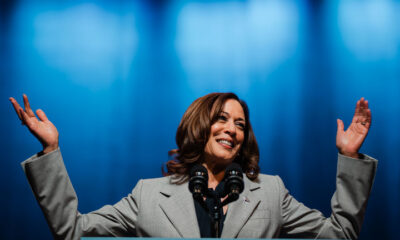

Kamala Harris to run AI taskforce
The US vice president will ask AI execs to evaluate the safety and fairness of their models US Vice President...
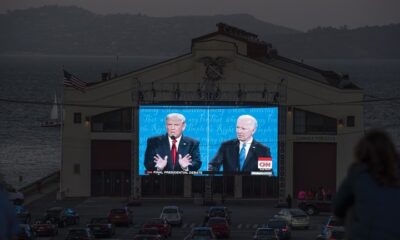

Most Americans want to move on from Biden and Trump – poll
70% of respondents said the incumbent shouldn’t bid for office in 2024, with that figure 60% for the Republican former...

OPINION


Disgraced ex-PM Liz Truss seeks to ruin any hopes for normal UK-China ties
The former premier’s Taiwan trip is nothing but a provocation for Beijing to lash out at London, sinking any constructive...


India facing challenge to steer SCO agenda away from Western-dominated frameworks
The Shanghai Cooperation Organisation is looking at ways to address the most pressing global issues without being a disruptive influence...


China isn’t the biggest threat to Italy’s prosperity
Rome is considering leaving the Belt and Road Initiative in a move which will place virtue signaling to other Western...


Meet the Czech lawyer who rallies thousands to shake up the EU establishment
In mid-April, a fledgling political party that recently formed in the Czech Republic called Pravo Respekt Odbornost (Law Respect Expertise;...


UK shows signs of good will to China, but it’s not the one calling the shots in this relationship
The British foreign secretary says antagonizing Beijing goes against London’s ‘national interests’, but Washington has other ideas British Foreign Secretary...

LIFE


conic Smiths bassist dies aged 59
The bassist with legendary English rock band The Smiths, Andy Rourke, has died at the age of 59, the group’s...


Village People demand Trump stop using their music
A viral video emerged last week of Donald Trump dancing to a Village People song at his Florida estate Village...


Hollywood star pulls out of hosting awards show amid strike
Drew Barrymore is stepping down as host of this year’s MTV Movie & Music Awards, due to be held on...
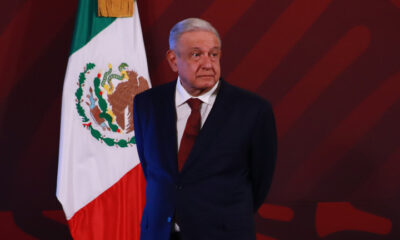

Mexico condemns US ‘interference’ in drug war
The DEA’s infiltration of the Sinaloa Cartel without state permission amounts to espionage, the Mexican president says Mexican President Andres...


Rock icon slams German authorities
Pink Floyd co-founder Roger Waters criticized the city of Frankfurt for canceling his concert and vowed to take legal action...



Trending
-

 FINANCE12 months ago
FINANCE12 months agoFacebook parent Meta fined €1.2 billion by Irish watchdog
-

 LIFE12 months ago
LIFE12 months agoconic Smiths bassist dies aged 59
-
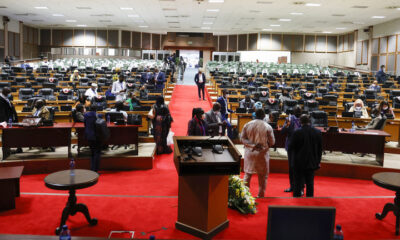
 NEWS12 months ago
NEWS12 months agoKenya supports creation of pan-African court
-

 FINANCE12 months ago
FINANCE12 months agoUS will default if debt deal fails – treasury secretary
-

 FINANCE12 months ago
FINANCE12 months agoGlobal debt balloons to record highs
-
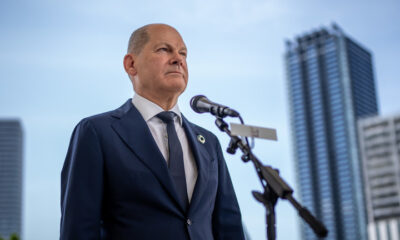
 WAR12 months ago
WAR12 months agoUkraine won’t join NATO anytime soon – Scholz
-

 NEWS12 months ago
NEWS12 months ago‘Subway killer’ Daniel Penny’s actions expose a gap in US law enforcement
-

 NEWS12 months ago
NEWS12 months agoGerman military to sell tons of toilet paper


